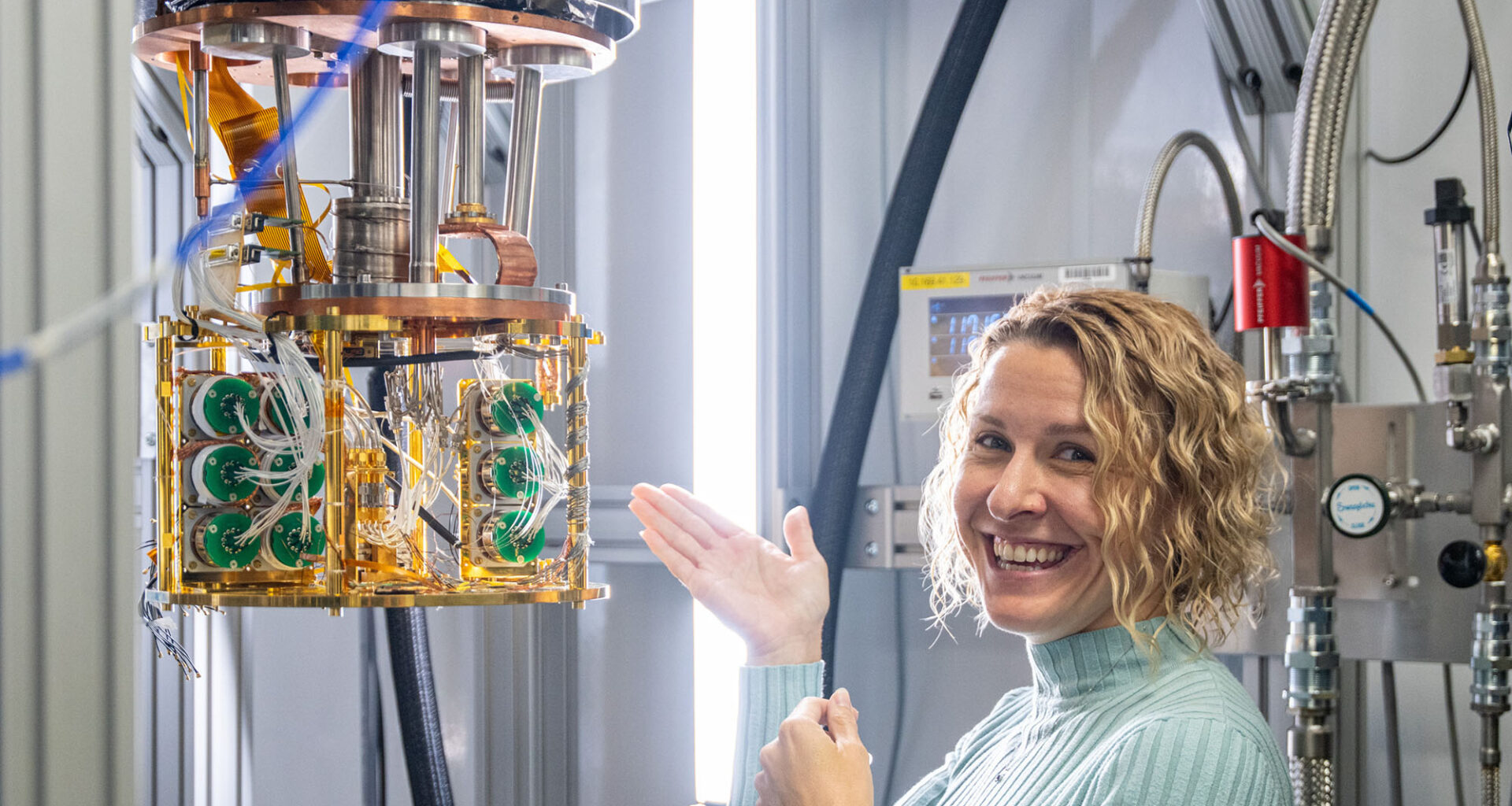Simon Fraser University has strategically recruited a team of world-class researchers with the interdisciplinary expertise needed to advance Canadian leadership in the global quantum computing ecosystem.
The SFU strategy is to lead research at every level of the quantum stack. SFU researchers are developing quantum chips and components, programming and software, even quantum networking capabilities. These technologies will provide exponential growth in computing power with numerous applications in areas like drug development, materials science, security, finance, communications and sustainability.
“At SFU, we are developing the technology needed for the quantum network of the future,” says Dugan O’Neil, vice-president research and innovation. “Canada’s National Quantum Strategy is focused on maintaining Canadian leadership in quantum technology, and SFU researchers are at the forefront of these emerging technologies, that are expected to be available within the next five years.”
Physics professor Stephanie Simmons was drawn to SFU by the pioneering work of Professor Emeritus Michael Thewalt—who had been shaping the world of silicon transistors since the 1970s—and SFU’s inventor-friendly IP policies. She brought with her a bold vision: to unlock the potential of large-scale quantum computing using silicon, the same material that powers traditional computer chips.
Together, they established the Silicon Quantum Technology Lab (SQT), where a new generation of researchers began pushing boundaries. Among them, Postdoctoral fellow Daniel Higginbottom and MSc student Alexander Kurkijian led a team that achieved a major breakthrough: the first high-performance method to link silicon spin qubits, the quantum elements at the heart of Simmons’ vision.
Unlike traditional computers that rely on bits, quantum computers use qubits—units that can exist in multiple states simultaneously. Simmons’ research focused on silicon spin qubits, a promising and scalable approach that could revolutionize computing and networking. To bring this technology to life, she co-founded Photonic Inc., a company dedicated to building the world’s first scalable quantum platform. Simmons participated in SFU’s entrepreneurial training program Invention to Innovation (i2I) which contributed to the business acumen and entrepreneurial mindset needed to launch a deep technology-based startup.
In 2023, Photonic emerged from stealth mode, unveiling its patented technology: silicon spin qubits linked by telecom photons—a game-changing innovation that captured global attention. That same year, Photonic announced a strategic collaboration with Microsoft, and more recently, intentions to establish a new R&D facility in the United Kingdom.

